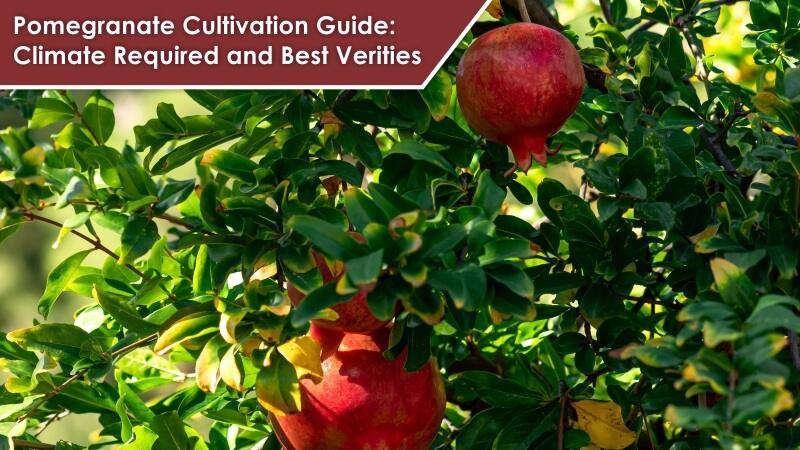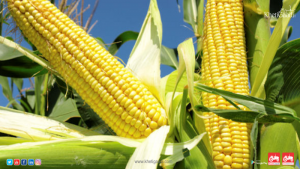Pomegranate is a significant horticultural crop filled in India. It started in Iran, and widely Pomegranate cultivation is done in the Mediterranean nations like Spain, Morocco, Egypt, Iran, Afghanistan, and Baluchistan. It is developed in some areas in Myanmar, China, the USA, and India. India positions first in pomegranate development on the planet. In India, significant pomegranate creating states are Maharashtra, Karnataka, Gujarat, Andhra Pradesh, Madhya Pradesh, and Tamil Nadu Rajasthan. Maharashtra leads with 90 thousand ha regions with a yearly creation of 9.45 lakh Mt tones and 10.5 Mt/ha usefulness. Maharashtra state represents 78% of India’s complete region and 84 percent of its absolute creation.
Pomegranate is perhaps the most loved table fruit. They can likewise get ready handled items like juice, syrup, squash, jam, anar rub, juice condensed, carbonated cold-drinks, and anar dana tablets, acids, etc. Pomegranate is nutritious, plentiful in minerals, nutrients, and proteins. The juice is helpful for infection enduring patients.
Environment required for Pomegranate Cultivation –
Effective pomegranate development is basically dry and semi-dry climate, where cold winter and high dry summer quality empowers natural product creation. Pomegranate plants can endure ice somewhat and might be viewed as dry spell tolerant. The ideal temperature for natural product improvement is 35 – 38 ° C. The area 500 m above from ocean level is the most appropriate for pomegranate development.
Soil –
Considering the soil prerequisite, it very well may be developed under various soil types, from low-ripe to high-rich soil. Nonetheless, in profound loamy, it gives an amazing yield. It can endure saltiness and alkalinity in the dirt partially. Soil having a pH range of 6.5 – 7.5 is great for Pomegranate cultivation.
Pomegranate Verities–
- Bhagwa
- Mridula
- Ganesh
- Jyothi,
- Jalore Seedless
- Kandhari
- Phule Arakta
- Phule Bhagwa Super
- Bhagwa Sindoor
Bhagwa is the most developed assortment because of its popularity for homegrown and send out purposes.
Pit Preparation and Planting-
Ninety-day old Pomegranate plants are prepared for relocating into the primary field in pits. Set up an appropriate size of the pit is 60 cm x 6o cm x 60. The ideal establishing distance followed by farmers is 10 to 12 ft (3 to 3.6 m) among plants and 13-15 ft (3.9 to 4.5 m) between lines. During rainstorm, pits are loaded up with yard fertilizer (10 kg), single superphosphate (500 gm), neem-cake (1 kg).The ideal time for pomegranate planting is in the blustery season (July-August) when adequate soil dampness is free for plants’ ideal development.
Compost Management in Pomegranate Farming–
Pomegranate can be filled even in the less prolific soil. All things considered, the suggested portion of compound manures ought to be fused in the pit for better creation and nature of organic products. The portion of composts and manures shifts as per kinds of soil fruitfulness, genotypes, area to locale. For Ambe Bahar composts should be given in December, and for Mrig Bahar organic products, manures should be given during May
Watering for Pomegranate Cultivation –
Pomegranate is a dry season tolerant natural product crop, which can support submerged shortage somewhat. Customary watering is likewise fundamental to lessen natural product parting, which is the significant problem of natural products. During winter, watering ought to be applied at 10 to 12 days of span, though during summer at 4 to 5 days. The vast majority of the farmers provided water through drip, saving water, and advantageous to apply composts.
Pruning in Pomegranate –
It is a promising strategy to control vegetative development and keep up with the shape and size of trees to empower legitimate light infiltration in the focal point of the tree, ease in social tasks, showering, and natural product collecting.
Gathering –
Pomegranate Harvesting Pomegranate gathering is beginning following 150 to 180 days from blooming to natural product development. Be that as it may, it relies upon genotype, climatic condition, and developing region. Harvesting of organic products ought to be done at the ideal development stage on the grounds that early gathering results from the dull, juvenile, and ill-advised aging of natural products. Conversely, late gathering prompts more inclined to the assault of problems. In any case, Pomegranate is a non-climacteric organic product that ought to be gathered after at an appropriate maturing stage. There are a few collect signs used to evaluate the development and reaping of pomegranate organic products. Dull rose pink tone ought to create on a superficial level and dim pink aril generally liked by the customers. The calyx at the lower part of Pomegranate natural products gets turned internal side is additionally a development list. Aril should be turned in dark red or pink. Products of pomegranate ought not be over-aged. Organic products ought to be reaped with secateurs or trimmers’ assistance since manual contorting may cause harmed natural products in groups.
Cleaning and Washing-
In the wake of reaping, natural products ought to be figured out in light of the fact that unhealthy and broke organic products ought to be taken out, and sound natural products are chosen for additional treatment. Subsequent to arranging, natural products ought to be washed with arrangement of sodium hypochlorite at the pace of 100ppm in water. This treatment will be useful to decrease microbial tainting and to keep a more drawn out time span of usability.
Yield–
A Pomegranate tree can deliver up to 12 to 15 kg/plant yield during the primary year. From the second year onwards, the yield per plant is around 15 to 20 kg.
Download KhetiGuru Mobile Application for more details in different types of horticultural crop cultivations.
Visit our page for more information about Tractor, Agricultural implements, Tractor Price, Tractor Videos, and Tractor Games.




